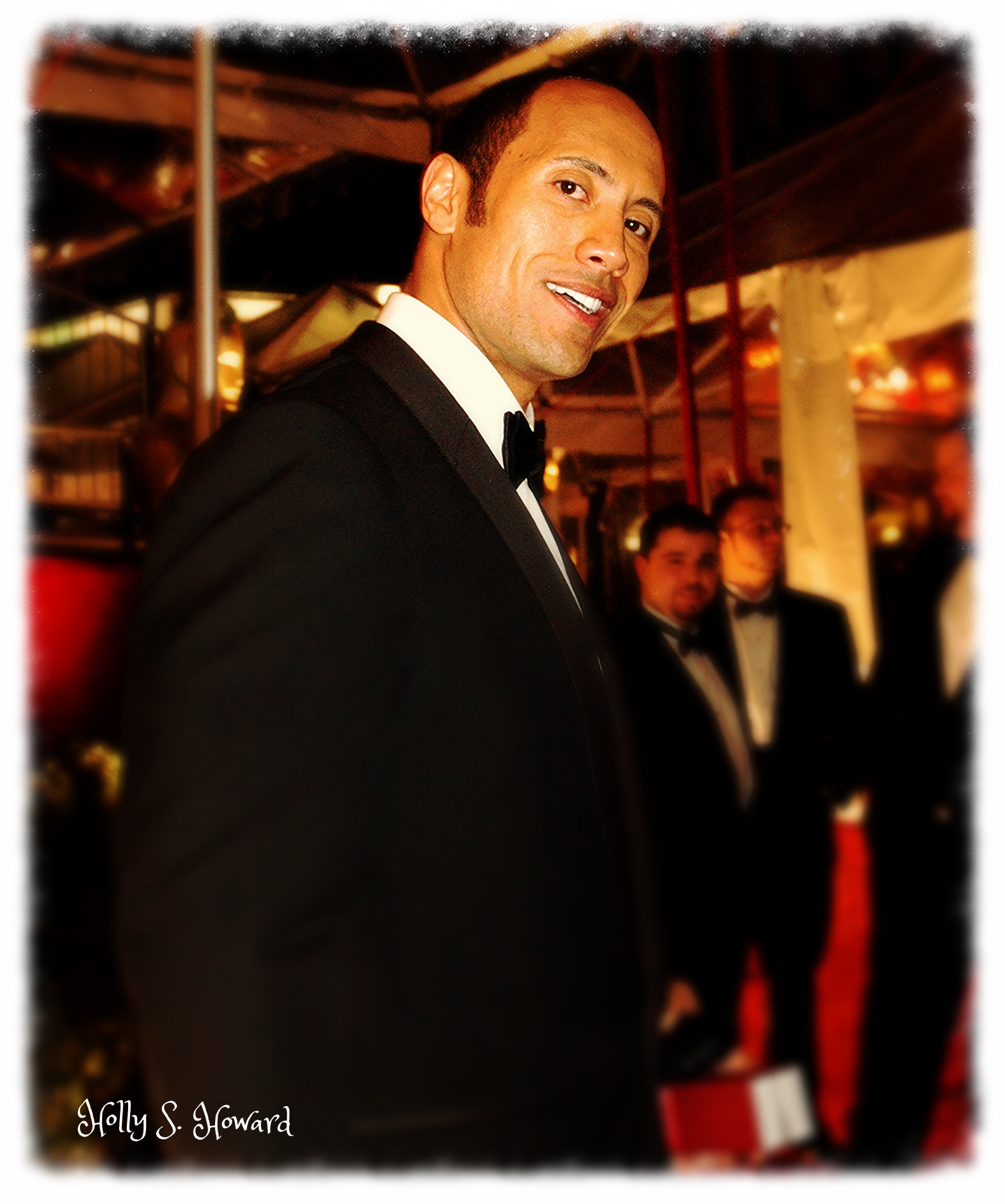
Dwayne ‘The Rock’ Johnson stands as an unprecedented titan in entertainment, a name synonymous with global box office domination and electrifying athletic prowess. While his film career has seen his projects gross over $14.9 billion worldwide, solidifying his status as one of the world’s highest-grossing and highest-paid actors, Johnson’s roots remain deeply embedded in the world of professional wrestling. This unique dual identity, however, has often presented a fascinating, and at times controversial, dilemma, prompting questions about the hidden costs associated with his enduring passion.
His decision to maintain a part-time presence in WWE, years after achieving unparalleled cinematic success, isn’t merely a nostalgic nod to his past. It’s a calculated, yet perhaps complex, balancing act that continues to captivate both his wrestling faithful and his Hollywood audience. For a star operating at such a stratospheric level, every professional choice carries significant weight, and the allocation of his valuable time and brand equity becomes a subject of intense scrutiny.
This article delves into the intricate journey of Dwayne Johnson, from his formative years and initial wrestling struggles to his groundbreaking success as a multi-hyphenate entertainer. We will analyze how his deep-seated attachment to professional wrestling, a hobby that has periodically pulled him back into the ring, has intersected with his blockbuster acting career, revealing instances where this passion has, at least in perception, come with a considerable price tag, potentially costing him millions in fan goodwill, opportunity, or direct earnings. By examining key moments in his career trajectory, we aim to uncover the economic and reputational implications of ‘The Great One’s’ controversial part-time return to the squared circle.
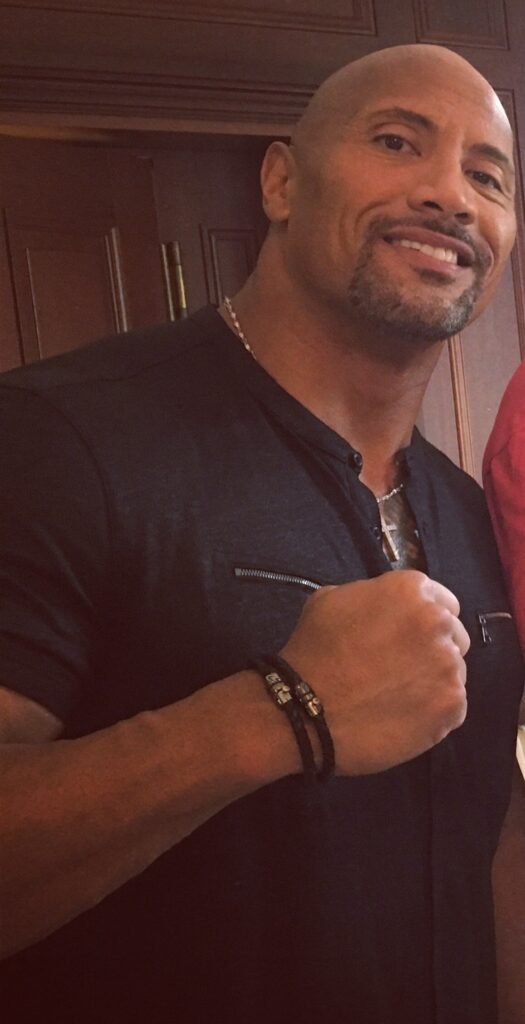
1. **The Genesis of “The Rock”: From Football Flop to Wrestling Prodigy**Dwayne Douglas Johnson’s origin story is far more complex than his larger-than-life persona suggests. Born on May 2, 1972, in Hayward, California, he inherited a rich legacy rooted in professional wrestling through both sides of his family. His father, Rocky Johnson, a Black Nova Scotian with Irish ancestry, was a professional wrestler who, alongside Tony Atlas, made history as the first black tag team champions in WWE in 1983. His Samoan mother, Ata Fitisemanu, was the adopted daughter of the legendary professional wrestler Peter Maivia, further cementing his lineage within the wrestling world and connecting him to the prominent Anoaʻi wrestling family.
Before professional wrestling beckoned, Johnson’s aspirations lay on the gridiron. He accepted an athletic scholarship to play football at the University of Miami, a team that famously won the national championship in 1991. Despite being a member of a top-tier NCAA Division 1 program and playing four years as a defensive tackle, Johnson found himself behind elite players, including future NFL star Warren Sapp, and appeared mostly in backup roles. He played in 39 games with one start, recording 4.5 sacks and 77 tackles during his time at Miami.
After graduating in 1995 with a Bachelor of General Studies and a dual major in criminology and physiology, Johnson still harbored professional football dreams. He went undrafted in the 1995 NFL draft, a significant setback for his athletic ambitions. He briefly signed with the Calgary Stampeders of the Canadian Football League, where he was moved from defensive tackle to linebacker and assigned to their practice roster. However, he was cut just two months into Calgary’s 1995 season, effectively closing the door on a professional football career.
It was this pivot point that truly set the stage for his legendary wrestling career. With his football dreams behind him, and with the direct assistance of his father, Johnson embarked on a path that would eventually lead him to global superstardom, proving that sometimes, the biggest disappointments can forge the greatest opportunities. His family’s deep ties to the wrestling business provided a natural entry point, transforming a promising athlete into a future entertainment icon.
Read more about: A Royal Musical Journey: Prince’s Enduring Partnership with Innovation, Artistry, and His Global Audience
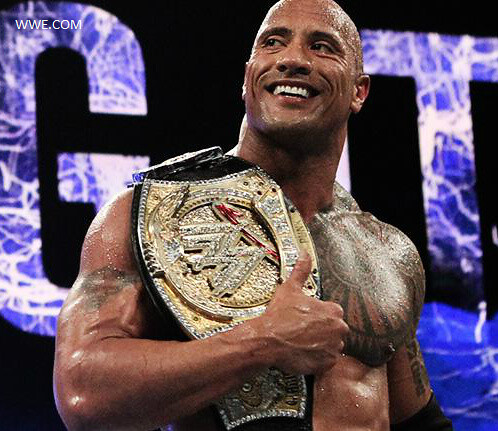
2. **Rocky Maivia’s Rocky Start: The Initial Fan Backlash and Character Evolution**Johnson began his professional wrestling career in 1996, a year after his football aspirations ended. Through the help of veteran wrestler Pat Patterson, he secured several tryout matches with the World Wrestling Federation (WWF). After gaining experience and winning the USWA tag team championship twice under the name Flex Kavana in Jerry Lawler’s United States Wrestling Association, Johnson officially signed a WWF contract, receiving additional training from Tom Prichard alongside talents like Mark Henry.
His WWF debut in November 1996 introduced him as Rocky Maivia, a ring name created by combining his father’s and grandfather’s names. Initially hesitant about the name, he was persuaded by Vince McMahon and Jim Ross. Heralded as the WWF’s first third-generation wrestler and nicknamed ‘The Blue Chipper,’ Maivia was pushed heavily from the outset, despite his relative inexperience. He joined Marc Mero’s entourage and made a strong showing at Survivor Series, being the sole survivor in an eight-man elimination tag match.
Despite this initial push, audiences quickly began to reject the clean-cut, overtly heroic character of Rocky Maivia. By early 1997, even after winning the Intercontinental Championship from Hunter Hearst Helmsley on an episode of Monday Night Raw, the negative sentiment grew. His title defenses, including one at WrestleMania 13 against The Sultan, were met with increasing hostility, culminating in audible chants of “die, Rocky, die” and “Rocky sucks” during his matches, a clear sign of fan dissatisfaction with his persona.
This fan rejection proved to be a pivotal moment. Upon his return from a knee injury in August 1997, Maivia dramatically turned heel, lashing out at the very fans who had booed him. He joined Faarooq’s stable, the Nation of Domination, and defiantly refused to acknowledge the Rocky Maivia name, instead referring to himself in the third person as ‘The Rock.’ This transformation, characterized by regularly insulting the audience, WWF performers, and interviewers, was the birth of the charismatic trash-talker persona that would soon take the wrestling world by storm.
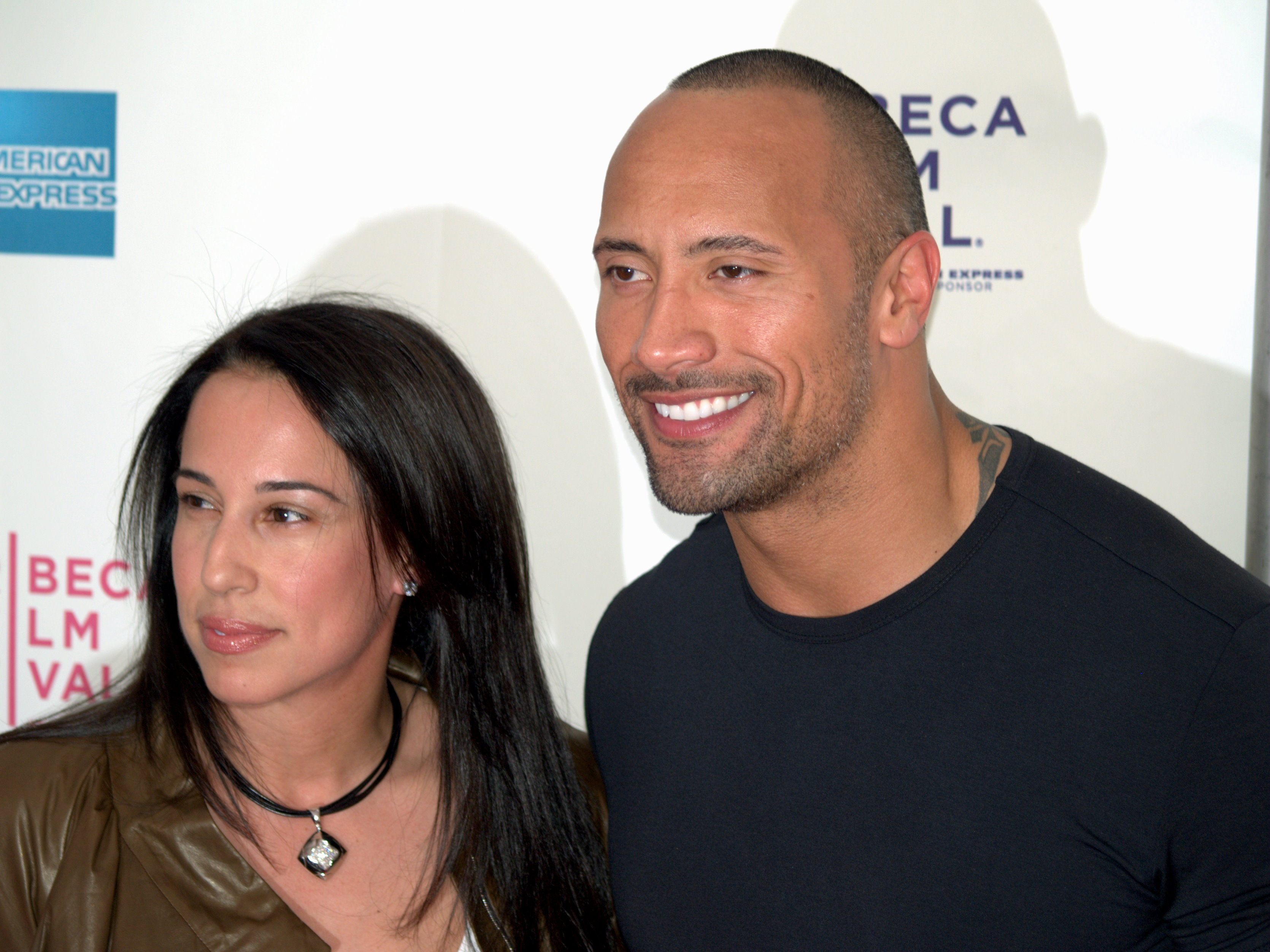
3. **The Attitude Era’s Undisputed Icon: How “The Rock” Defined a Generation**With the emergence of ‘The Rock’ persona, Dwayne Johnson rapidly ascended to unprecedented heights in the World Wrestling Federation, becoming one of the most charismatic and dominant figures of the company’s highly successful ‘Attitude Era.’ His sharp wit, unparalleled mic skills, and distinctive catchphrases quickly resonated with the audience, turning initial disdain into overwhelming adulation. He became a master of character consolidation, truly defining his iconic persona between 1998 and 2000, which would remain his hallmark for years.
His rise to superstardom was marked by numerous championship reigns and legendary feuds. The Rock won his first WWF Championship at Survivor Series in November 1998, defeating Mankind in the finals of the ‘Deadly Game’ tournament. This victory, however, saw him turn heel once again, aligning with Vince and Shane McMahon as the ‘crown jewel’ of The Corporation, a strategic move that cemented his status as a top villain and drew immense heat from the crowd, further fueling his growing fame.
The Rock’s rivalry with Stone Cold Steve Austin became one of the most iconic feuds in professional wrestling history, headlining multiple WrestleMania events and defining the era. His matches against Mankind, including the infamous ‘I Quit’ match at the Royal Rumble in January 1999, which involved him hitting Mankind with a steel chair 11 times instead of the scripted five, showcased a vicious streak and contributed to some of the most memorable and controversial moments of the period. These intense storylines and physical encounters solidified his reputation as a formidable and must-watch performer.
Beyond his in-ring prowess, The Rock’s influence extended significantly through his innovative use of language and presentation. His catchphrases, such as ‘Can you smell what The Rock is cooking?’ and ‘It doesn’t matter!’, became ubiquitous, not just in wrestling but in popular culture. These phrases, combined with his unique mannerisms and ability to command an audience, translated into numerous merchandising opportunities, making him a commercial powerhouse for the WWF during its most lucrative period.
Johnson’s integral role in the development and success of the WWF during the Attitude Era cannot be overstated. He was a central figure in the ratings war against rival WCW, consistently delivering compelling storylines and unforgettable performances that captivated a global audience. His ability to seamlessly transition between heroic and villainous roles, always maintaining his magnetic charisma, cemented his legacy as one of the greatest professional wrestlers of all time and laid the groundwork for his future endeavors.
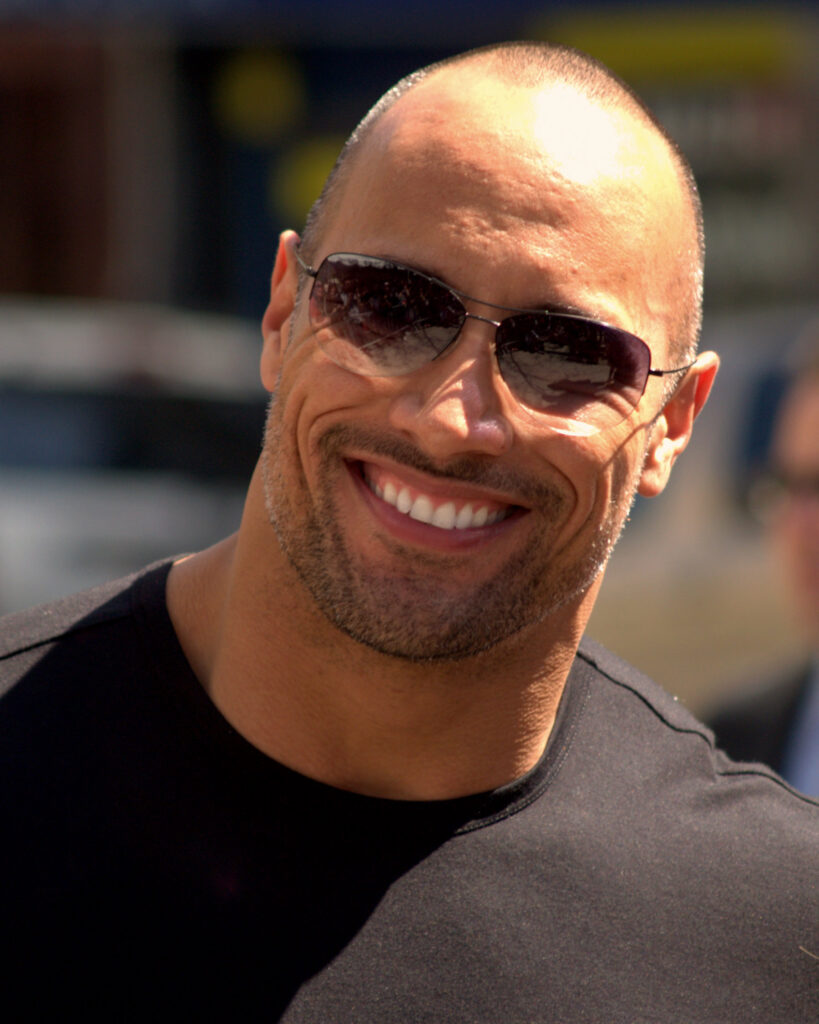
4. **The Siren Call of Hollywood: Johnson’s First Forays into Acting**While still at the peak of his professional wrestling career, the allure of Hollywood began to beckon Dwayne Johnson. His immense popularity, natural charisma, and striking screen presence made a transition to acting seem inevitable. His initial foray into the film world came with a role in the 2001 blockbuster ‘The Mummy Returns,’ where he portrayed the Scorpion King. This performance served as a powerful proof of concept, demonstrating his ability to captivate audiences beyond the wrestling ring.
The success of his appearance in ‘The Mummy Returns’ swiftly led to his first leading role in the action fantasy film ‘The Scorpion King’ in 2002. This project required Johnson to take significant time off from his full-time wrestling commitments with the WWF. The context explicitly notes, ‘Johnson used this time off to act in The Scorpion King,’ a clear indication of how his budding acting career began to directly impact his presence in WWE and foreshadow the shift in his professional priorities.
This strategic move into film was incredibly prescient, as it paved the way for an acting career of unparalleled success. Johnson’s films have since collectively grossed over $14.9 billion worldwide, a staggering figure that firmly positions him as one of the world’s highest-grossing and highest-paid actors. This colossal financial success underscores the massive opportunities and earning potential that Hollywood offered, dwarfing even the impressive earnings from his wrestling heyday.
Over the years, Johnson has starred in a diverse range of films, showcasing his versatility. He has commanded the screen in family films like ‘The Game Plan’ (2007) and ‘Jumanji: Welcome to the Jungle’ (2017), action blockbusters such as ‘San Andreas’ (2015) and ‘Skyscraper’ (2018), and action-comedies including ‘Central Intelligence’ (2016) and ‘Red Notice’ (2021). His iconic role as Luke Hobbs in the ‘Fast & Furious’ franchise, beginning with ‘Fast Five’ (2011), was instrumental in making it one of the highest-grossing film series in history, further solidifying his status as a cinematic powerhouse. These early steps into acting, while seemingly a natural progression, initiated the complex dynamic between his two worlds.
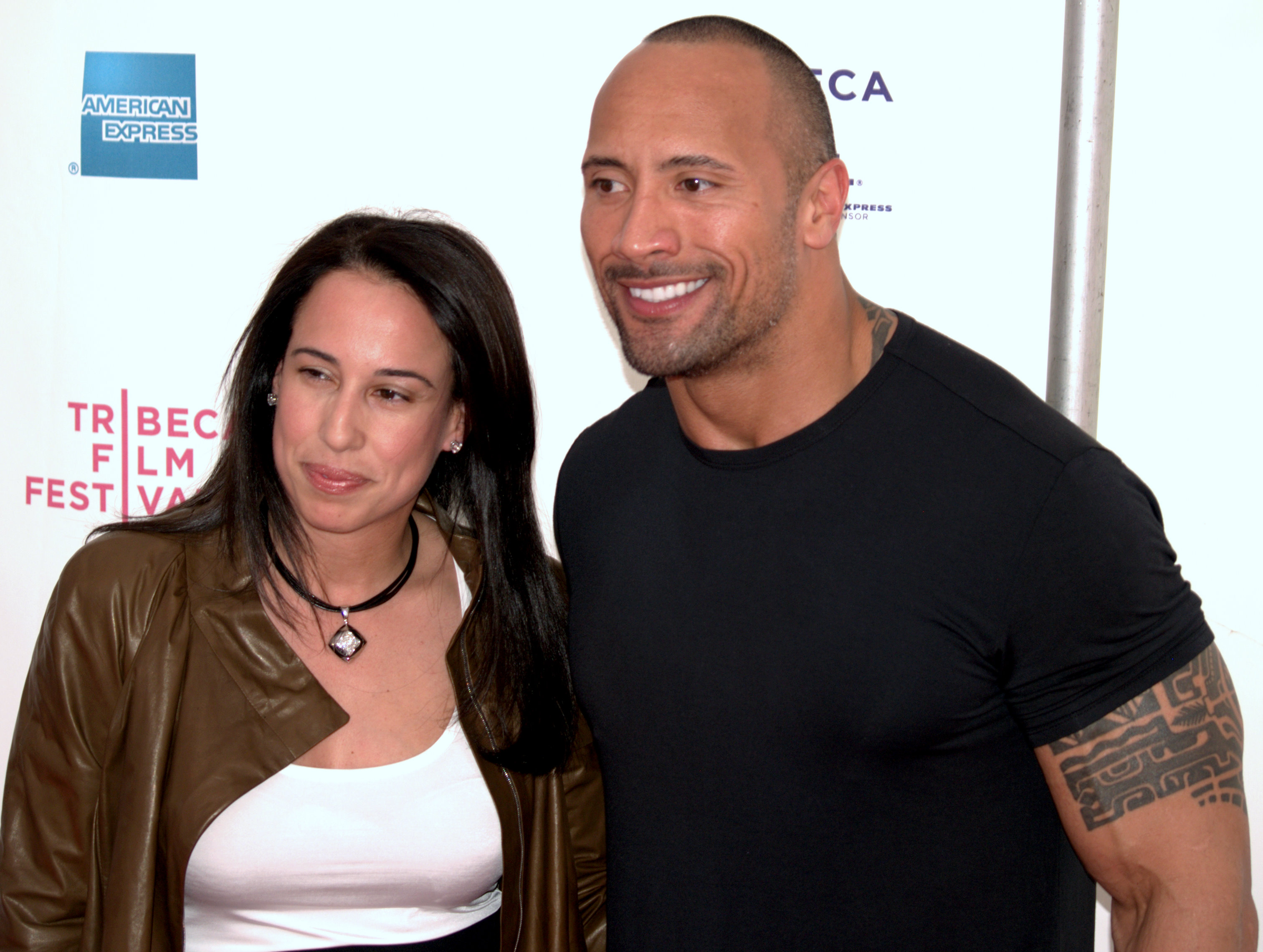
5. **The “Hollywood Rock” Phenomenon: When Fans Turned on Their Hero**The rising demands of Dwayne Johnson’s acting career inevitably led to a decreased presence in WWE, a shift that began to generate significant friction with a segment of his dedicated wrestling fanbase. While his Hollywood star was ascending, some wrestling purists felt abandoned, perceiving his part-time status as a lack of commitment to the sport that had made him famous. This sentiment reached a critical point by mid-2002.
Sean Coyle, writing for ESPN.com in 2018, retrospectively noted the tangible impact of this perception: ‘following his victory over Hulk Hogan at WrestleMania X8, The Rock ‘started to see a dip in fan support’ and ‘that dip turned into a plunge’ by the time the Rock had his match with Lesnar at SummerSlam because fans knew he was leaving WWE to pursue an acting career, as evidenced by the negative crowd response during his match with Lesnar.’ This direct quote from the context vividly illustrates the controversy and cost of his perceived divided loyalties.
The negative fan reaction was palpable and deeply affected Johnson. Following his loss to Brock Lesnar at SummerSlam 2002, where he relinquished the WWE Undisputed Championship, The Rock was visibly angry at the crowd’s boos. When he attempted to deliver a post-show speech, the fans continued to jeer him. In a moment of frustration, he famously cut a short promo, declaring that “sing-along with the Rock is over!”, signaling a palpable tension between the star and his audience.
This significant shift in fan sentiment directly influenced Johnson’s in-ring persona upon his return in 2003. He deliberately turned heel, embracing a new character known as ‘Hollywood Rock.’ The context clearly states, ‘Because of negative fan reaction during previous matches as a result of his budding acting career, the Rock turned heel.’ This meta-narrative saw him adopt a new look, including a shaved head, and mock both WWE performers and fans during his now-famous ‘Rock Concerts,’ segments where he played the guitar and satirically serenaded the audience.
The ‘Hollywood Rock’ persona, while entertaining for many, crystallized the resentment some fans harbored over his priorities, positioning his acting career as a direct affront to his wrestling roots. This era concluded with his final wrestling match until November 2011, a high-profile showdown against Stone Cold Steve Austin at WrestleMania XIX. The controversy surrounding his ‘hobby’ and its perceived costs had fundamentally altered his relationship with the wrestling audience, an early and significant indicator of the complex balancing act he would continue to navigate for years to come.
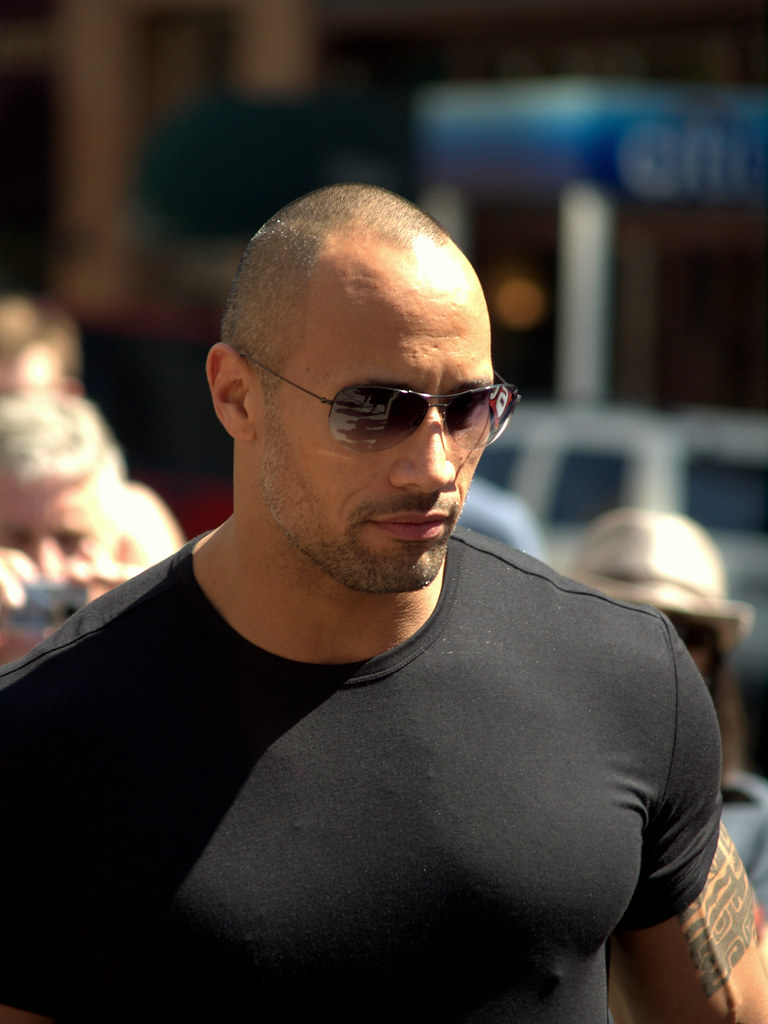
6. **The Grand Return: John Cena Rivalry and WrestleMania Buyrates**Johnson’s “indefinite suspension” from WWE in 2001 (in storyline) and his “time off to kickstart his acting career” after SummerSlam 2002 marked a significant departure from full-time wrestling. However, the allure of the squared circle proved irresistible. His official, high-profile return to WWE came on February 14, 2011, when he was sensationally announced as the host of WrestleMania XXVII. This wasn’t merely a nostalgic appearance; it was a strategic re-entry that immediately ignited a fiery feud with then-face of the company, John Cena, setting the stage for one of wrestling’s most anticipated rivalries.
The rivalry with John Cena was meticulously crafted, spanning two WrestleMania main events and generating immense buzz. The Rock, performing live on Raw, launched into a lengthy promo where he not only addressed the fans but directly targeted Cena. After numerous satellite appearances and a live confrontation where insults were exchanged, the stage was set for WrestleMania XXVII. There, The Rock, as host, interfered in Cena’s main event against The Miz, delivering a Rock Bottom to Cena and allowing The Miz to retain the WWE Championship. This shocking turn of events immediately cemented their rivalry as deeply personal, with “The Rock and Cena agree[ing] to a match at WrestleMania XXVIII the next year.”
The anticipation for their “Once in a Lifetime” encounter at WrestleMania XXVIII in April 2012 reached unprecedented levels. The build-up included classic “Rock Concert” segments where Johnson, much like his “Hollywood Rock” days, played guitar and mocked Cena in song, reminding fans of his unparalleled charisma. When the two finally clashed in the main event, The Rock emerged victorious, countering Cena’s attempt at a People’s Elbow into a Rock Bottom for the pin. This pivotal match wasn’t just a win for The Rock; it was a massive financial triumph for WWE, as “This event broke the record for biggest professional wrestling pay-per-view buyrate.” The Rock’s ability to drive such a monumental economic impact with his return underscored the immense value he still brought to the company, even as a part-time performer.
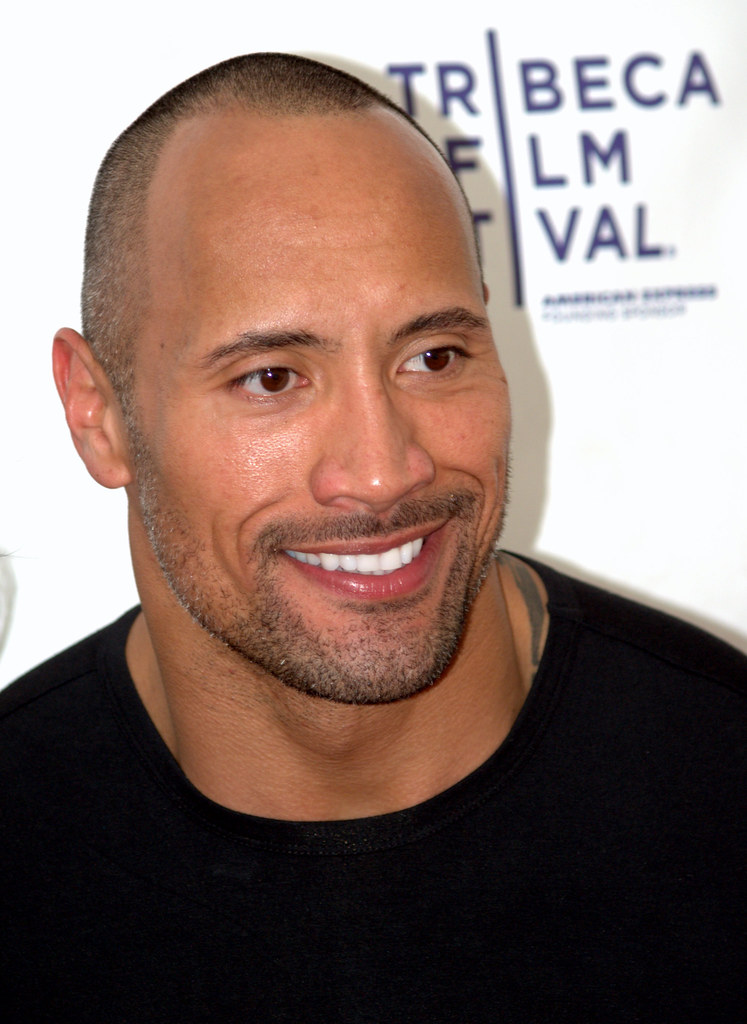
7. **Championship Glory and Shifting Priorities: The 2013 WWE Title Reign**Following his historic victory over John Cena, Dwayne Johnson wasted no time in articulating his next ambition: to once again become WWE Champion. This declaration, made the night after WrestleMania XXVIII, set the stage for another significant, albeit controversial, part-time run. On July 23, 2012, at Raw 1000, The Rock officially announced he would wrestle for the WWE Championship at the Royal Rumble pay-per-view, immediately putting him in direct contention with the reigning champion, CM Punk, and other top contenders like Daniel Bryan and John Cena. This move highlighted his strategic interest not just in marquee matches, but in securing the company’s ultimate prize.
The road to the Royal Rumble saw intense verbal confrontations between The Rock and CM Punk, culminating in a highly anticipated championship match. Adding to the drama, The Rock was attacked by The Shield, a dominant new faction, leading Vince McMahon to declare that if The Shield interfered in the title match, CM Punk would be stripped of the WWE Championship. This added layer of corporate authority underscored the high stakes and the immense effort WWE was investing in The Rock’s return to the title picture. On January 27, 2013, at the Royal Rumble, “The Rock defeated CM Punk to win the WWE Championship for the eighth time,” a historic moment that marked his first world championship reign in over a decade.
The decision to put the WWE Championship on a part-time performer, especially one with a burgeoning Hollywood schedule, generated considerable debate among the fanbase and within the wrestling industry. While it undeniably boosted ratings and pay-per-view buys, it also meant that the company’s most prestigious title was largely absent from weekly television, a point of contention for many dedicated viewers. The Rock successfully defended his newly acquired title against CM Punk at Elimination Chamber before losing it back to John Cena at WrestleMania 29. This marked the end of his active, championship-holding part-time run, signifying another phase where his “controversial hobby” directly intersected with the company’s top-tier storylines and championship integrity.
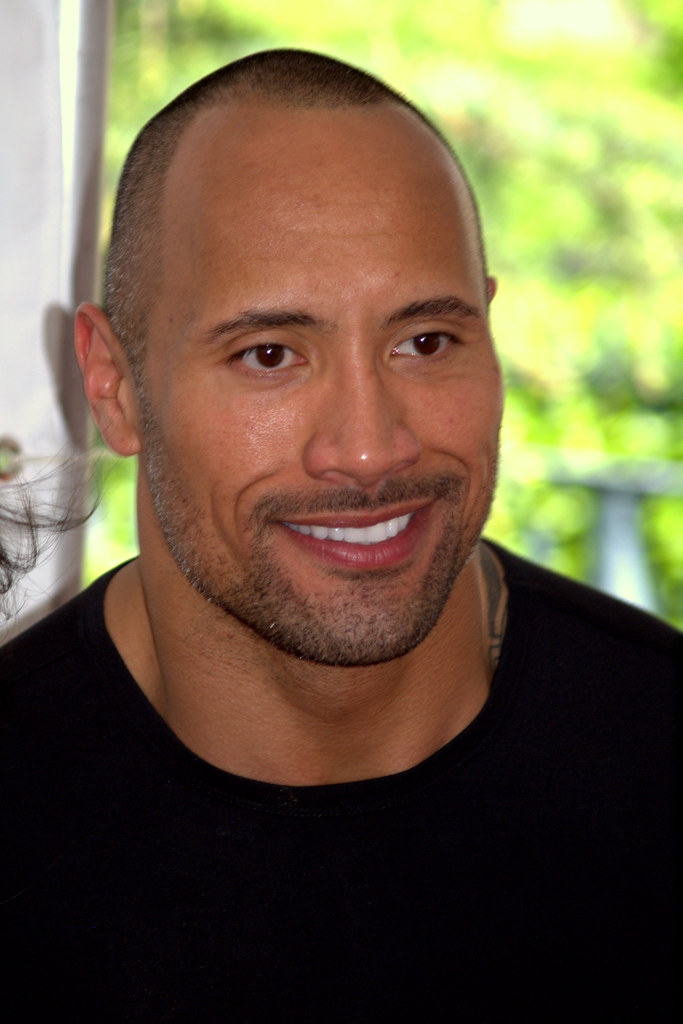
8. **Sporadic Appearances and the Full Hollywood Dive (2014-2019)**After his 2013 WWE Championship run concluded, Dwayne Johnson’s appearances in WWE became increasingly sporadic, a natural consequence of his skyrocketing film career. The context notes that he “made sporadic appearances from thereon until his retirement in 2019.” These intermittent returns were often for significant moments, such as the opening of WrestleMania 31 in 2015, where he famously appeared alongside Ronda Rousey to confront The Authority (Triple H and Stephanie McMahon). Each appearance was treated as a major event, capitalizing on his star power to provide a ratings boost and enhance the grandeur of WWE’s biggest shows.
However, the infrequency of his appearances also served as a constant reminder of his primary commitment to Hollywood, intensifying the debate about his “controversial hobby.” While his past part-time runs had delivered massive financial returns, the opportunity cost of his absence from WWE’s regular programming became a more prominent discussion point. His full-time acting career meant that prime dates and consistent storylines were simply not feasible, leaving some fans yearning for the days of “The Rock” as a regular fixture and expressing concern over how his sporadic presence impacted full-time talent vying for top spots.
By 2019, Johnson formally announced his retirement from professional wrestling. This declaration, which came after years of diminishing in-ring activity, marked the official end of his storied career as a full-time, or even consistent part-time, competitor. While he continued to hold the distinction of being “one of the greatest professional wrestlers of all time,” his practical engagement shifted dramatically. This period solidified his status as a Hollywood juggernaut, with his films collectively grossing “over $14.9 billion worldwide,” making him “one of the world’s highest-grossing and highest-paid actors.” The sheer scale of his cinematic success undeniably dictated his professional trajectory, placing his wrestling involvement firmly in the realm of a cherished, but infrequent, hobby.
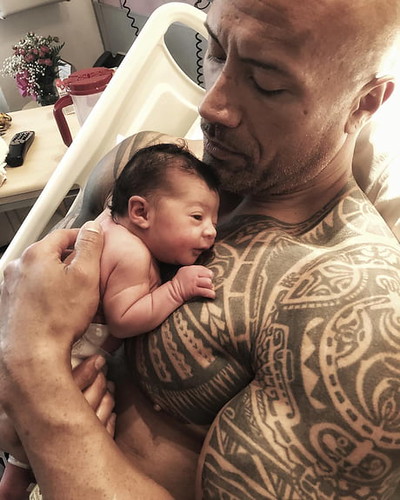
9. **The Boardroom Rock: TKO Group Holdings and Business Ventures**While Dwayne Johnson’s in-ring career became largely a thing of the past by 2019, his connection to the professional wrestling world, and sports entertainment as a whole, evolved into a new, powerful dimension. His entrepreneurial acumen and deep understanding of the entertainment industry led him to significant boardroom roles, fundamentally altering the nature of his “involvement” in the business. He became “a member of the board of directors of TKO Group Holdings—the parent company of UFC and WWE.” This strategic move positioned him not just as a former talent, but as a key executive with direct influence over the future of the very companies that define professional wrestling and mixed martial arts.
This role on the TKO board signifies a profound shift in how Johnson’s passion intersects with his professional life. It moves beyond the physical demands of wrestling to the strategic and financial implications of a global entertainment conglomerate. His insights, born from decades as both a performer and a Hollywood titan, offer invaluable perspective to the board, influencing business decisions that could impact talent relations, marketing strategies, and content development for both WWE and UFC. This level of corporate engagement demonstrates a long-term commitment that transcends sporadic in-ring appearances, embodying a different kind of investment in the industry he helped define.
Beyond TKO, Johnson’s business ventures further illustrate his expansive influence within the sports and entertainment landscape. He is “a co-owner of the United Football League,” diversifying his portfolio and extending his brand into another major sports property. Additionally, as “co-founder of Seven Bucks Productions,” he has built a media empire responsible for many of his cinematic and television successes. These multifaceted business roles reveal a sophisticated strategy of brand building and financial investment, indicating that his “controversial hobby” has matured into a significant stake in the ownership and strategic direction of major sports and entertainment enterprises, potentially yielding far greater long-term financial returns than individual match payouts ever could.
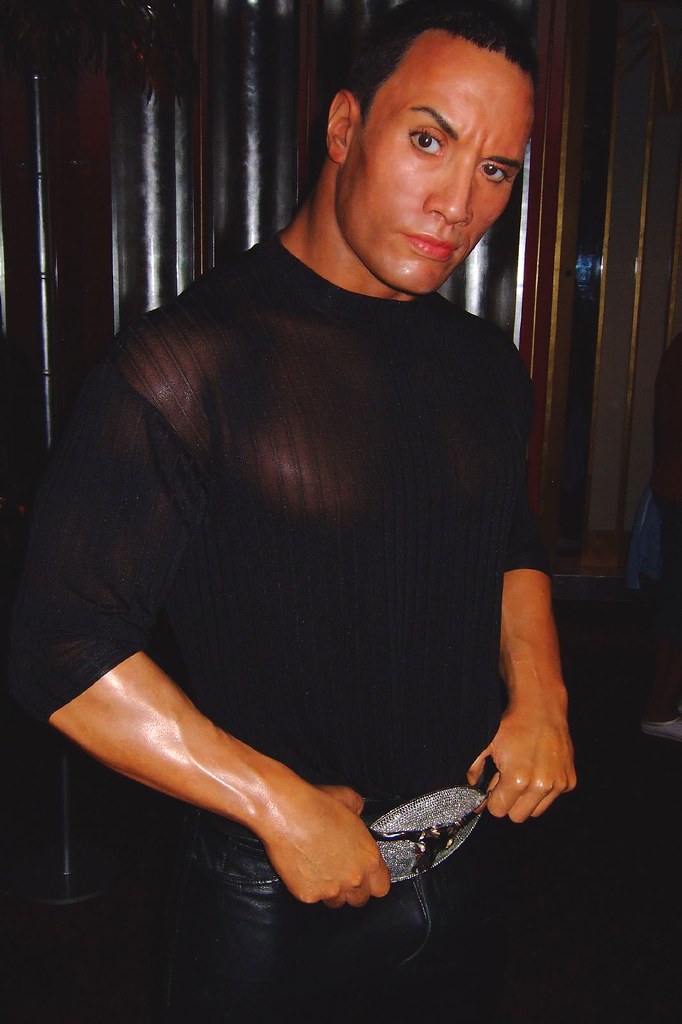
10. **The Modern Era: 2023 Return and Future Implications**Despite his official retirement from active competition in 2019 and his significant corporate responsibilities with TKO Group Holdings, the call of the WWE audience proved to be too strong for Dwayne Johnson to ignore entirely. In 2023, he made another highly anticipated return, further complicating the narrative of his “controversial hobby” versus his Hollywood commitments. The context explicitly states, “in 2023, he returned once again on a part-time basis,” signaling a renewed, albeit limited, physical presence in the company. This latest return culminated in his main eventing WrestleMania 40, a remarkable feat given his status as a global movie star and corporate executive.
This most recent return reignited the perennial debate about part-time performers in WWE, particularly regarding their impact on full-time talent. While Johnson’s star power undeniably generates immense revenue and global media attention, his occasional insertions into top storylines can sometimes overshadow and displace performers who are on the road weekly. The build-up to WrestleMania 40, for instance, saw a dynamic shift in plans that involved The Rock, initially rumored for a match against Roman Reigns, eventually leading to a tag team main event on Night 1 and significant interference in the Night 2 main event. This demonstrated the immense gravity of his presence and the strategic decisions involved in leveraging his star power.
The “controversial hobby” of wrestling for Dwayne Johnson, therefore, continues to carry complex financial and brand implications. On one hand, his appearances deliver record-breaking viewership and unprecedented social media engagement, proving his unparalleled ability to move the needle. On the other hand, the cost can be perceived in terms of fan resentment over perceived displacement of full-time talent or the sheer logistical challenges of integrating a star of his magnitude into ongoing storylines. As a board member of TKO, Johnson now has a direct hand in shaping the strategy around such returns, ensuring that his passion aligns with broader business objectives, attempting to optimize both brand value and financial returns, and navigating the evolving expectations of a diverse global fanbase. The “Great One’s” journey through wrestling is a masterclass in evolving celebrity, constantly balancing personal passion with monumental professional demands.
Read more about: The Real Cost of Speed: 14 Sports Cars & What Financial Experts REALLY Think About Your Investment
Dwayne “The Rock” Johnson’s journey through professional wrestling and Hollywood is more than just a tale of immense success; it’s a fascinating study in brand management, strategic evolution, and the enduring power of passion. From his humble beginnings and initial fan rejection to becoming a global icon who seamlessly transitions between the silver screen and the squared circle, Johnson has continually redefined what it means to be a multi-hyphenate entertainer. His “controversial hobby” has proven to be a double-edged sword, at times drawing criticism from dedicated fans, yet consistently delivering colossal financial and cultural impact. Now, with a seat on the TKO board and continued occasional in-ring appearances, The Rock isn’t just a performer or an actor; he’s an architect, shaping the future of the very industry that launched him, a testament to a career built on unyielding charisma and an unmatched business acumen.



